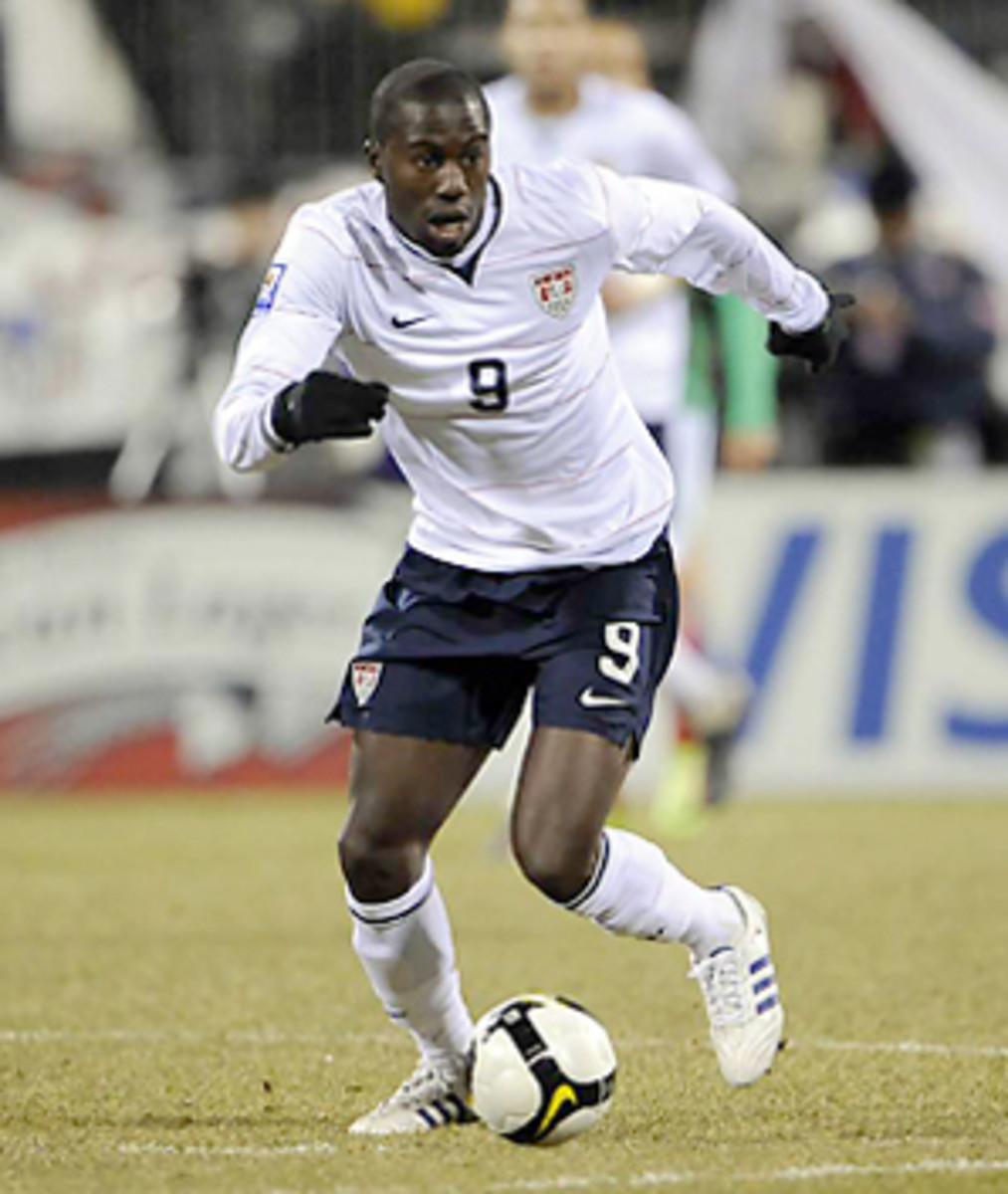Altidore spotlights overseas pitfalls
This viewpoint is patently absurd, but it's not much of a stretch for vast numbers of American fans and pundits to opine in this manner, seeing as they also questioned how in the world Villarreal coach Manuel Pellegrini possibly could leave the young American phenom on the bench following his arrival last August.
Lost in the vitriol and hyperbole swirling about this snub of the fine young Jozy is that Pellegrini had better players, more experienced and battle-hardened, at his disposal, and yes, one of them is the New Jersey-born Giuseppe Rossi, who has stunned the xenophobes by steadily moving up the ladder to represent Italy at the U-21 level, at the 2008 Olympic Games and now with the senior national team. Yet Pellegrini also has Turkish international Nihat Kahveci, Argentine-Mexican Guillermo Franco, Spaniard Joseba Llorente and others of far more experience. He doesn't need Altidore; not yet.
With nine matches to play, Villarreal is fourth in La Liga and on Tuesday faces Arsenal in the Champions League quarterfinals. That Pellegrini is some hapless coach, huh? Franco, 32, hasn't scored a league goal this season, and if he leaves this summer, that could move Jozy up the ladder. Maybe.
And Xerez, well, is atop the Second Division, and thus why would coach Esteban Vigo shake up a winning formula and perhaps tick off a few, if not most, of the players who got the team where it is sans Altidore? That's tough on the young American, but all he can do is tough it out, not act out.
Despite languishing on the bench, whether he knows it or not, Altidore is a better player than the sometimes hesitant, robotic rookie we saw two years ago in Major League Soccer, and the promising and powerful yet glitch-prone lad of last year. His movement off the ball, his positioning in coordination with his teammates and his decisions on touches and traps are all greatly improved from what he displayed at the Olympics. Like most forwards, he will score goals in streaks and labor through droughts, but his game is much fuller.
His case illustrates the perils of leaving MLS for Europe, as desirable and necessary it may be for a player to reap the financial and competitive benefits. And whether he has earned a role as a starter can be leavened by the stark fact that no field player on the U.S. roster would rate a regular starting place on any of the top 10, maybe the top 15, teams in the world.
MLS and U.S. Soccer regularly take broadside hits for their efforts to find, develop and groom players. But ours is not a soccer culture, where being steeped in the game nurtures understandings and appreciations most American players need to be taught. Just about every player who heads overseas talks about feeling out of place, surrounded by so many teammates for whom so much about the game is second nature, learned by absorption as much as instruction.
A cynic would say Carlos Bocanegra washed out at Fulham; the realist could point to him having played more than 100 English Premier League games, a record for an American field player, and surviving several coaching changes in 4½ seasons as well as two narrow rescues from relegation. He's starting for a good team (Rennes) in a good league (France), yet many of the opponents he'll face in a World Cup will be from tougher backgrounds and loftier clubs.
Clint Dempsey has been in and out of the Fulham lineup, yet is still getting regular time and, truth be told, hasn't been consistently effective enough to be labeled a stone-cold starter. In a better world, he'd have gone straight to MLS out of high school, done well and headed overseas a few years younger. But there's no guarantee the Nacogdoches-New England express would have made a connection to England, Europe or anywhere else.
At 14 or 15 or 16, an English kid joins a pro team and spends the day, every day, living and playing and breathing the game. Every year or so, he renews a contract, or gets cuts loose and thus must decide which club to try next, or whether to try another line of work. How many American kids endure that pressure or make those choices as teenagers? Until MLS can instill that environment, it can't catch up. And how many parents in this country will toss their children into such a situation?
Rossi's father may have been a bit pushy, yet his son went to Parma of Italy as a teen and, after the road bump known as Manchester United, has hit the autostrada at top speed. He, too, burst out in frustration a few times as he learned how the game is played off the field.
Wonder child Freddy Adu went to MLS too soon and left too early. Dancing and dazzling at the Olympic Games, while a notable achievement in this country, counts less at major clubs, which balk at releasing players for such extravaganzas and are ruthlessly insistent about using players of sufficient determination and talent to get results. Period. Full stop. No others need apply.
By leaving MLS so early in his career, Altidore virtually guaranteed he'd be parked on the bench in Europe for a while. The good news is he's still so raw that the training and the environment already have reaped great benefits. The bad news is his ascending learning curve will soon flatten out without stiffer competition. He seems to have the maturity to handle it, but also must be realistic enough to know much of his destiny is out of his hands. That's how it goes overseas.





